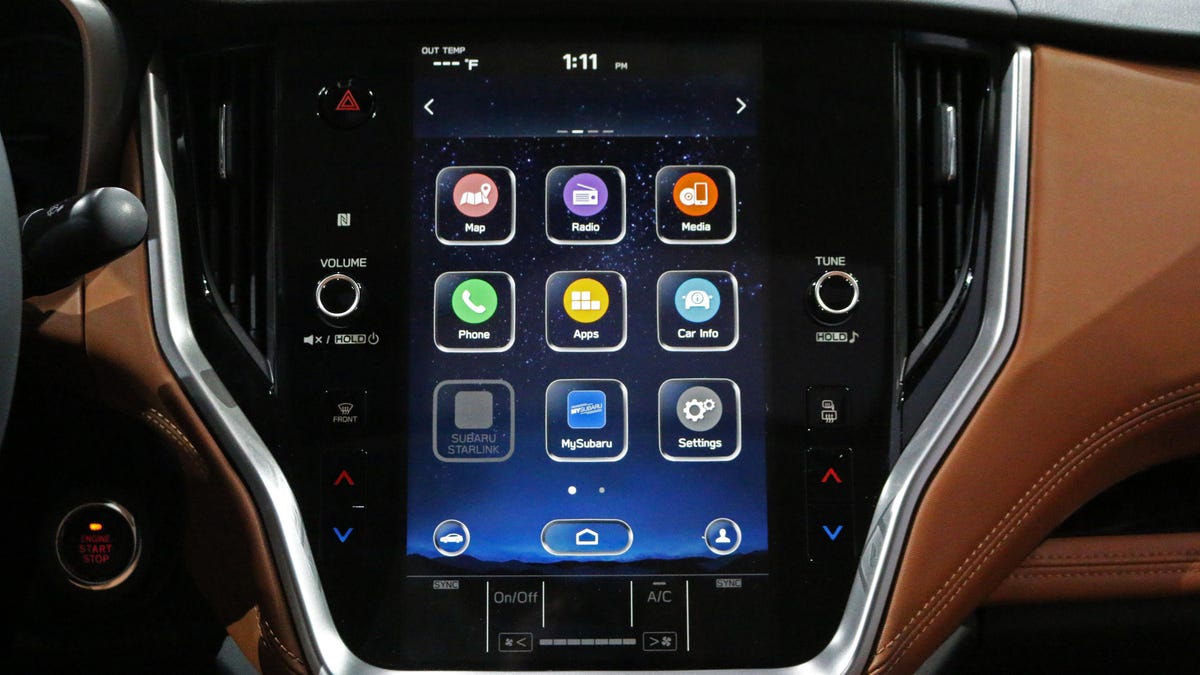Car navigation systems: Should you order the factory GPS on a new car?
We love CarPlay and Android Auto, but there are reasons to go for the factory nav option.

The 2020 Subaru Legacy is an example of car with a huge, tablet-like screen and the option of CarPlay, Android Auto and factory GPS navigation.
I received an email from Steve B. in Attleboro, Massachusetts, asking if he should get the optional factory navigation system in a new 2020 Subaru Legacy he wants to buy. Many buyers would like to just use Apple CarPlay or Android Auto instead of factory navigation, but carmakers often bundle all three systems together so you can't escape the cost of built-in navigation, even if you never use it.
Phone-based navigation has vastly more personalization and information about you, the best voice command in the world, a constantly improving interface, and free map updates that happen constantly rather than occasionally for a fee. But I wouldn't be honest if I didn't point out a few good reasons to consider getting GPS navigation from the factory:
- Improved apps: Music streaming services, podcasts, and even Waze are coming to factory head units in good numbers and, once you fuss around entering your login info, tend to work well. But you won't find built-in Apple Music in any car yet.
- Less distraction: Factory-installed navigation tends to lock out a lot of fussy menus when the car is moving, and is mounted in a way that can make viewing and interacting with it simpler and safer.
- Improved voice command: Car voice recognition now only lags a year or two behind phones, which is a big improvement. Factory navigation rigs also take advantage of the car's built in, optimized, noise-cancelling microphones.
- Off-grid robustness: Built-in factory navigation doesn't rely on a cellular connection to the degree phone navigation apps do, though you can always cache map data on your phone to make it virtually as robust off the grid.
- Less fussing: Factory GPS rigs require no fussing to connect each time you start your car, while phones can sometimes be glitchy about Bluetooth, or require steps to launch Android Auto or CarPlay every time you drive.
- Whole car integration: Factory navigation can integrate with the rest of a car's systems. That means when you are low on fuel or charge, the navigation system can automatically plot a course to the nearest gas or charging station along your route. Some carmakers even make route and terrain information available to the car's powertrain so it can adjust to the road conditions ahead. Renault/Nissan and Volvo are about to make Android and Google the core of their car's cabins, however, and may explore a deeper level of whole car integration than we've seen from a mobile-centric operating system.

